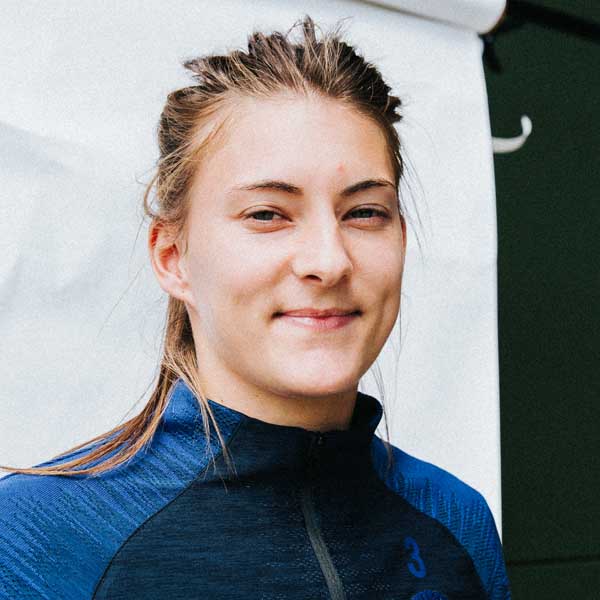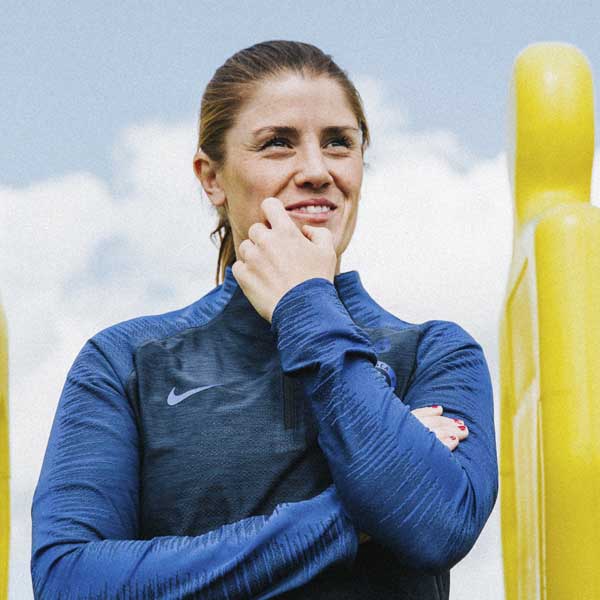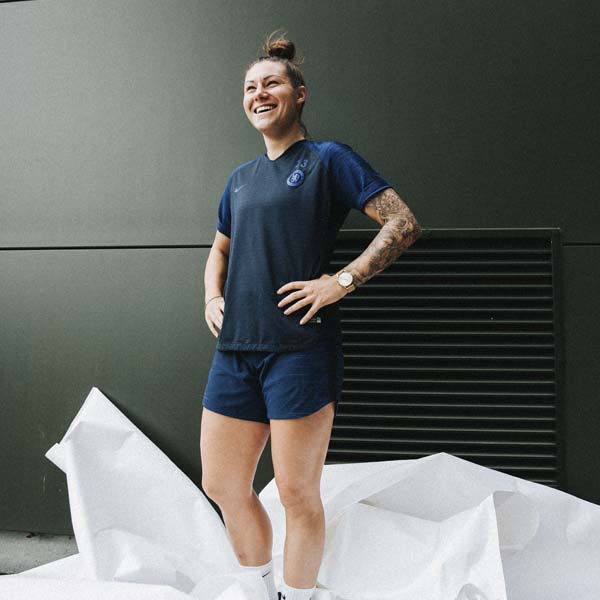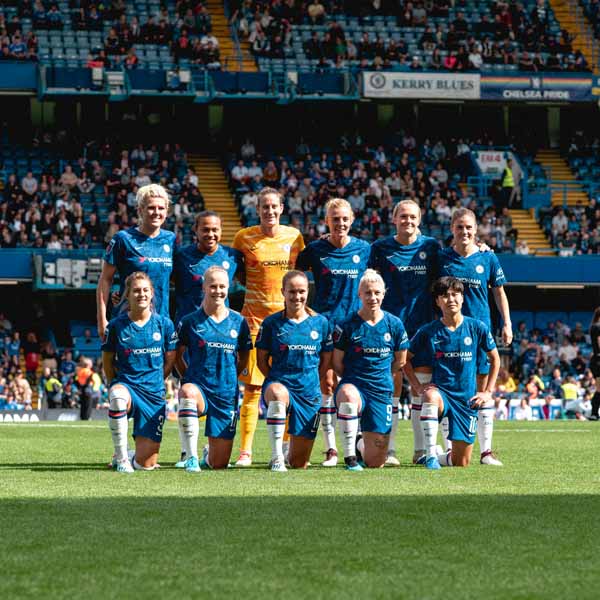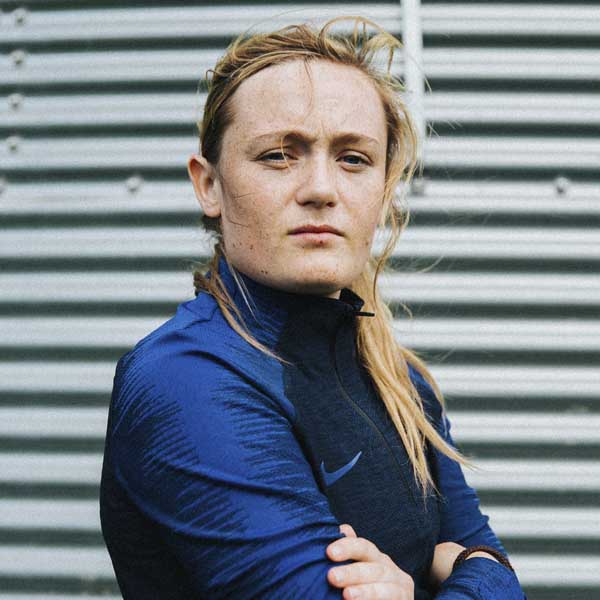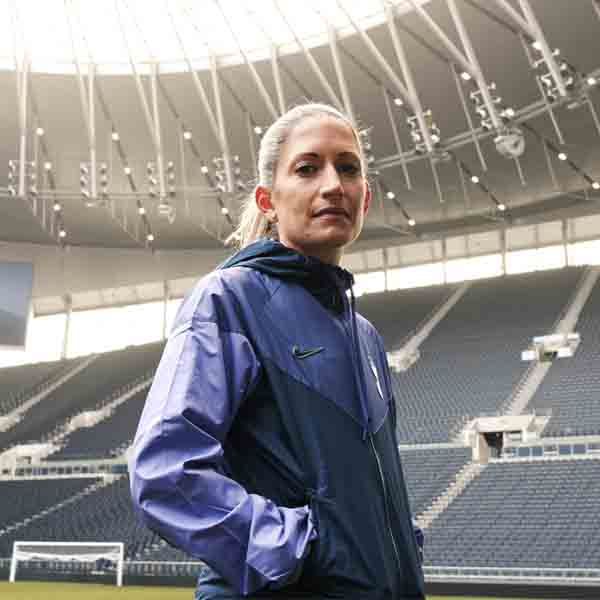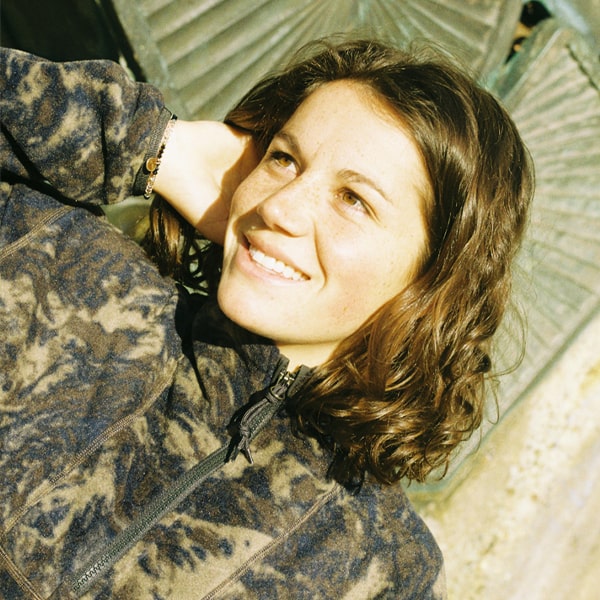Chelsea women are set to play their Barclays Women's Super League 2019 season opener against Spurs at Stamford Bridge this weekend, and the match will mark the first time that they have ever played at the stadium. Ahead of the occasion we’ve been speaking to several of the players to get their thoughts about it, and next up is Magdalena Eriksson.
The Swedish international defender also spoke candidly about her career, delving into the highs and lows throughout her journey, her involvement with the Common Goal initiative, and about how much she enjoys living in London. But with the match on Sunday in mind, there was only one place to start...
What goes through your head when you think of playing at Stamford Bridge?
I get chills when I start thinking about it. It’s been nice to have that as a goal throughout the whole preseason. It’s made working hard worth the while, because you know that it’s all going to lead up to that game. We want to give the fans a really good experience and we want to prove to them that it was worth coming and hopefully they can come back and see us again.
On a personal level, will it feel like something of a milestone for you to play at a stadium like that?
Yeah, definitely. I love playing in front of big crowds in big stadiums. I’ve experienced it a few times in my life, but the more experience you get, it’s so important. I’ve been to Stamford Bridge as a fan over the last couple of years, and now being able to play there myself… it’s going to be amazing.
You broke into the game at such a young age. Did you have to grow up fast?
Yeah. I feel like it’s different being a footballer; you lose a natural part of your childhood when you’re growing up. But we learn so much from what we do and it makes grow in a different way, so it’s not that I feel that I missed anything, rather I feel that I gained loads of extra experiences by getting into the game so early.
How would you describe your journey in the game so far?
It’s 20 years since I started playing football, which is insane when I think about it. But I’ve always been a grafter, I’ve always worked really hard. I wouldn’t say I’m the biggest talent ever, but I feel like my talent is that I’m able to work hard every day. And I think that’s been my thing since I was young. I’ve always been a player that you can rely on, that will give everything in every game, so that’s something that I feel like I’m bringing with me to Chelsea. That’s what I try to contribute every day here.
It’s not all been ups though, there’s been downs as well. I’ve been on the bench, or I haven’t been selected for the national team and I’ve been through all of those things that I think you have to as a footballer to come out stronger.
I’ve always had a hard time seeing myself as a football player."
Talking about those lows, do you feel that there have been barriers to your progress?
I’ve always had a hard time seeing myself as a football player. I’ve always thought that I should do something else, like I should study as well. When I was younger it was hard for a woman to see herself as only a football player. You always felt like you had to do something more than that. Now, I know I’m only a football player and I love it, because I get to spend one hundred percent of my time improving myself. I think if I could have had that when I was younger I would’ve been even better at this stage, so that was hard. Also being picked – or not picked – for the national team is a humbling experience. It took me some time to establish myself in the national team. You’re young and you want to get in there and you want to play, and every time you don’t get selected you get humbled as well. But then you work even harder, so that made me even stronger.
In that time, how have you seen the game change?
I grew up in Stockholm in Sweden, and it’s the capital of Sweden, the biggest city, but it actually has the worst facilities for women’s football. In the winter, when it’s snowing, you have to play indoors just to be able to train. There was one pitch that was indoors, which was a nine-a-side pitch and we could only play on half of it. Another team trained on the other half. It was at nine o’clock in the evening and it was an hour and a half away from where we usually trained. I had to go on the subway and the train for an hour and a half just to train on half of a pitch with my team during winter. I think of that compared to now at this big training ground where we have our own pitch, being able to train whenever we want; it’s a massive change. I’m really lucky and I would never take it for granted, because I know what it’s like on the other side.
How would you describe a club like Chelsea, would you say it’s quite a forward thinking place?
Absolutely. In every aspect of the game they are really forward thinking, especially the women’s game. We talk a lot about our menstrual cycle and how that affects us physically and those are the kind of details that haven’t really been touched so far. It’s really cool to be in such a progressive place; a place where you can just focus on being a footballer, getting the most out of yourself, while knowing that the things around you will always be taken care of.
Playing for your country and winning something for your country is amazing."
How about living in London, is it important now for you to live somewhere that matches your outlook and mindset?
As I said, I grew up in Stockholm, which is the biggest city in Sweden, not nearly as big as London, but I love the city life, having lots of restaurants and different places to go and stuff to do. I started out living here in Cobham, but I found it a bit too small and too far away, so I moved to Kingston, which is quite nice. It’s a good distance to the training ground and to the city and a nice place with lots of good cafes and restaurants.
With the game at Stamford Bridge in mind, how much do you live for the big occasions?
I love it. That’s why I want to train hard every day and that’s why I want to prepare. It’s for those moments. We recently won bronze in the World Cup. Playing for your country and winning something for your country is amazing, especially this summer. I don’t think women’s football has ever been as big as it has this summer. We had the whole country behind us, and I almost get emotional talking about it because it was such an amazing experience.
What was the experience of the World Cup like for you?
In Sweden, I’ve never felt that much attention and that much attention specifically to the women’s game. After we won the bronze we came home to Gothenburg and we celebrated in front of 30,000 people. Like I said, I’ve never felt that respect, a genuine respect, towards us. Everyone said how amazing we were and how entertaining it was to watch us.
How did you feel after the tournament, did you want to go straight into playing more or did you need the rest?
No, it was so good to just relax and not do anything. I even enjoyed just doing the dishes, because I remember thinking that it was so far away from the life we had in France, when you just had food and everything served for you, you didn’t do anything except play football. So it was so nice to go back and do normal things for three weeks. For the first two weeks I didn’t think about football at all. I think I needed that break from it. But then I started thinking about it and I was like, OK, now I want to come back. Then when I came in I was fresh and ready to go.
Has the summer made you more hungry for success on the club stage?
Absolutely, especially with the year we had last year where we were so close in so many instances, but we didn’t quite get there in any competition. So I feel like the team is hungry for more this season. We want to prove to ourselves and to everyone that Chelsea is still a really good team.
You joined Common Goal recently. Can you tell us why you wanted to join the organisation and what stood out about what they’re doing?
I’ve always been wanting to do something more. Before, when I was playing in Sweden, I barely had enough money to support myself, but now that I’m getting more and more privileged, I feel like I want to give back in some way. Common Goal is such a nice way of doing it because it’s one percent of your salary. It doesn’t matter how much you earn, it’s still one percent. The way that they laid that out for me was that if every footballer gave one percent, imagine how much we could do together. I definitely want to support that. I’m the first Swedish player to do it so hopefully I can inspire some more Swedish players to do it as well.
How much do you see your rising profile as an opportunity to make a change through football?
After the World Cup I feel like I’ve had a massive rise in people writing to me, people connecting to me on social media, following me, and that’s when I realised that I could make a massive impact from being a role model and from just being myself. I want to make the most out of that, and Common Goal is one of the things that I want to support and I want to show that Play Proud is what we put our money in, which is a project that supports LGBTQ in football, which is especially not even heard of in the men’s side. I want to keep changing that culture so that everyone just feels like they can be themselves.
It would be massive if the men’s game could develop in the same way as the women’s game on that regard...
For us, it’s really easy to be ourselves, and you feel comfortable with it. So I’m hoping that with time and more players stepping out and supporting it it will change the culture in the men’s game as well.
You’ve touched on being a role model yourself, but are there people in the game and outside that you look at and have a lot of respect for?
I think someone like Megan Rapinoe, she was a role model in so many ways, both as a football player – she was amazing – and as a person, with all the things that she said and the way she said it. It was really cool and really inspiring. She managed to reach out to so many people during this World Cup and still managed to be the best player she could be on the pitch. That’s something that inspired me. To know that you can put time and effort into both things, you can be a role model and a really good footballer.
Finally, the game at Stamford Bridge, how does it help the game grow and do you want to see it more regularly?
Yeah, I hope that it’s a success and that we can do it more regularly. It’s a really good way of promoting the game, especially after the World Cup. That it sold out in three days, you can see that the demand is there. So now we’re just giving them the supply. It’s cool to see that it sold out in three days, it shows that there is an interest for us and hopefully this is just the beginning and we can have more games in the stadium.
Photography by Madison Phipps for SoccerBible.












